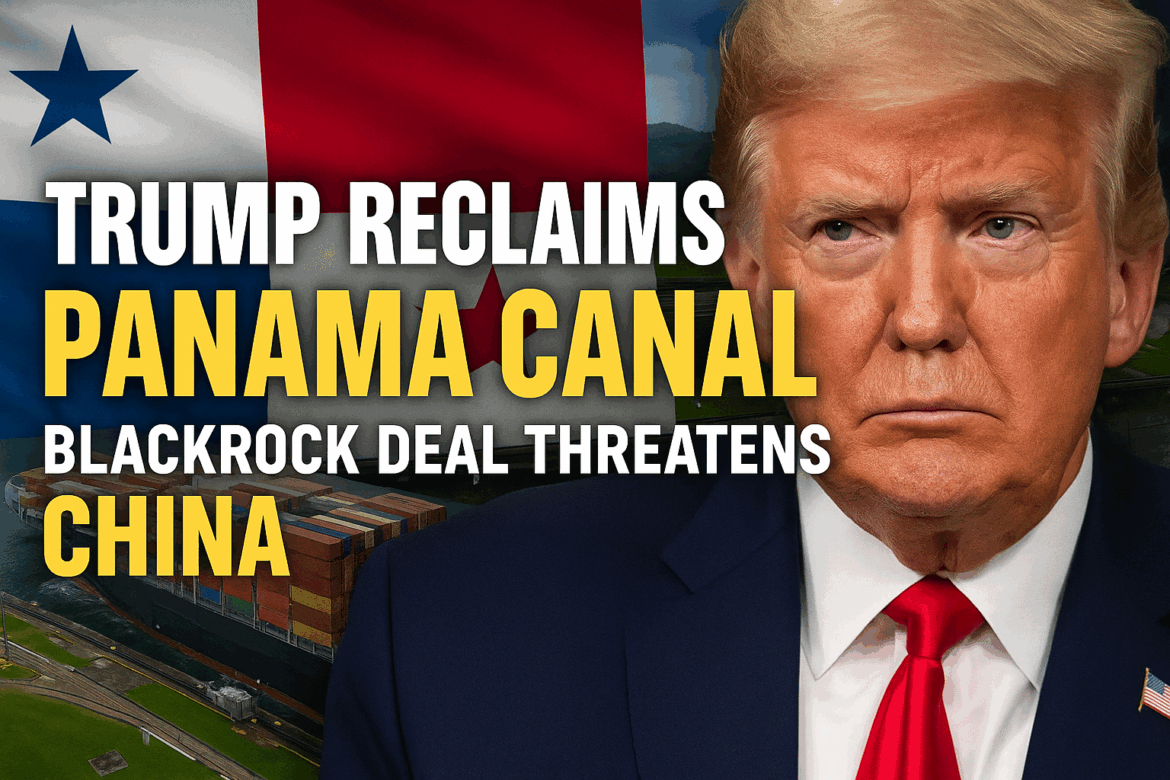The battle for control of the world’s most strategic maritime chokepoints is heating up, and President Donald Trump has thrust America into the center of this new global power game. At a March 4 joint session of Congress, Trump revealed a historic move: an American company is acquiring both ports surrounding the Panama Canal, signaling a dramatic shift in U.S. foreign policy and economic leverage.
Trump did not mince words. “The Panama Canal was built by Americans, for Americans,” he said. “It was given away by the Carter administration for $1, but that agreement has been violated very severely… we’re taking it back.”
The company behind this acquisition is none other than BlackRock, the world’s largest asset manager with $11.5 trillion under its control. According to reports, BlackRock’s $22 billion bid includes not just the Panama Canal ports of Balboa and Cristóbal, but also a network of 43 ports in 23 countries — a staggering realignment of global shipping influence that delivers a direct blow to China’s Belt and Road Initiative.
The ports in question are currently operated by CK Hutchison Holdings, formerly Hutchison Whampoa, a Hong Kong-based firm long associated with Chinese billionaire Li Ka-shing. The sale would terminate decades of Chinese-linked influence over one of the most vital maritime arteries on the planet.
Chinese officials quickly condemned the move. While the Chinese Foreign Ministry attempted to accuse the U.S. of “economic coercion” and “bullying,” the transcript of their briefing omits the very quotes highlighted by CNN — a suspicious omission that suggests deeper tensions within Beijing’s propaganda apparatus.
State Department spokeswoman Tammy Bruce struck a defiant tone: “We are glad to see U.S. investors acquire a controlling stake… This will reduce CCP control over the Panama Canal area.”
Investigative journalists Ann Vandersteel and Michael Yon, both of whom have extensively reported from Panama, emphasized the geopolitical stakes. Vandersteel described the deal as a “colossal blow to China’s global port reach,” instantly erasing roughly one-third of Beijing’s strategic port influence. Yon pointed out the immense vulnerability of chokepoints like the Port of Balboa, where a single incident — like the infamous Suez Canal blockage or Baltimore’s 2024 bridge disaster — could paralyze global shipping.
Trump’s Panama pivot is more than just a business transaction — it’s a declaration that America is reclaiming its influence in the hemisphere and reasserting control over assets once lost to globalist deals and Chinese encroachment. The Great Game of ports has begun, and this time, America is playing to win.

